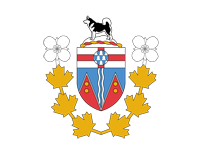Gold Commissioners of Yukon 1918 to 1932
After World War I, with Dawson on the decline, the positions of Commissioner and Administrator of Yukon were abolished and their duties and responsibilities as Chief Executive Officer of Yukon were re-assigned to the Gold Commissioner of Yukon.
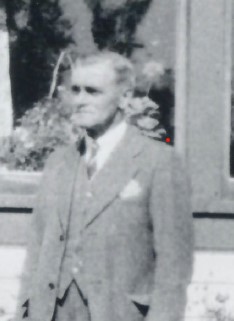 George Ian MacLean
George Ian MacLean

Gold Commissioner from September 10, 1928 to June 30, 1932 (appointed at the age of 53)
George Ian MacLean was born on September 16, 1874 in Hamilton, Ontario. He was an experienced civil servant and a former staff in the Dawson administration. MacLean conducted negotiations on behalf of the Yukon with the federal Minister of Labour and signed an agreement for old-age pensions for Yukon in 1928. During this time, all the big mines in the Mayo region closed and Yukon was in for a time of hardship. MacLean died on December 16, 1938 in Toronto, Ontario.
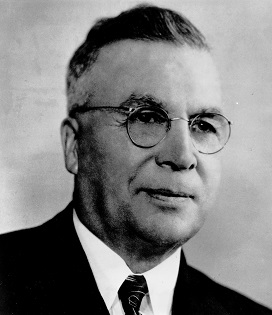 George Allan Jeckell
George Allan Jeckell

Acting Gold Commissioner from November 14, 1927 to September 10, 1928 (appointed at the age of 47)
George Allan Jeckell was born on July 25, 1880 in Exeter, Ontario. Jeckell had been teaching in Dawson since 1902 and started the move into administration positions in 1919. Jeckell managed a meagre territorial budget during the depression and refused to allow the council to pass bills that would allow Yukoners to not behave fiscally responsibly as the country prepared for WWII. Controller Jeckell and his small staff managed territorial programs from Dawson City where three Yukon Council members met for a few days once a year to pass a budget and ordinances. Jeckell created special hunting rights for US soldiers working the highway in 1942. In April 1946, Jeckell took part in a dinner for 200 people for the handing over of the Canadian highway section of the Alaska Highway and facilities to the Canadian government. During his time in the position, there were big construction projects such as the Canol Project, the Refinery in Whitehorse, the Pipeline to Skagway and the Alaska Highway. Upon his retirement, he received the Order of the British Empire in recognition of his long career in Yukon. Jeckell died on May 30, 1950 in Seattle, Washington.
An Order-in-Council transfers the power of the Gold Commissioner to the Office of the Comptroller on June 30, 1932. The Office of the Commissioner is officially abolished on February 20, 1934 because of worsening economic climate.
A considerable reorganization of the federal government took place and an Order-in-Council changes the title of the Yukon Chief Executive Officer from Comptroller to Controller on December 3, 1936.
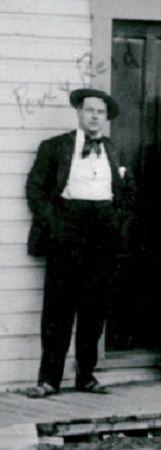 Percy Bearisto Reid
Percy Bearisto Reid

Acting Gold Commissioner from November 17, 1924 to March 31, 1925 (appointed at the age of 50)
Gold Commissioner April 1, 1925 to November 14, 1927
Percy Bearisto Reid was born on August 21, 1874 in Summerside, Prince Edward Island. He was a former Carcross mining recorder. The main business was the management of mining claims, timber leases, contracting for road repairs and the basic maintenance of the few government buildings still in use. He was well liked, and the community was in shock and disbelief when he died suddenly while in office on November 14, 1927 in Toronto, Ontario following a surgery.
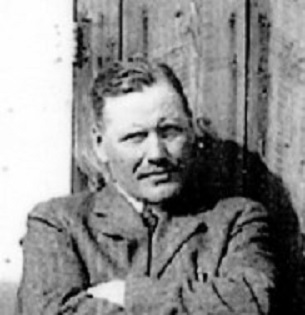 George Patton MacKenzie
George Patton MacKenzie

Gold Commissioner from January 25, 1913 to March 31, 1918
Gold Commissioner with the added duties of Commissioner from April 1, 1918 to November 16, 1924 (appointed at the age of 45)
George Patton MacKenzie was born on October 17, 1873 in Malagash, Nova Scotia. He was the founder and principal of Yukon’s first high school in 1912. He was appointed Gold Commissioner in 1913 and on April 1, 1918, the duties of the Commissioner were transferred to his portfolio. Even after the Councillors suggested he should get a raise and move into the vacated Commissioner’s Residence, he saw the need for fiscal restraint and refused. In 1919, the Yukon Council was reduced to three members and the responsibility for the Dawson municipal government are transferred to the Gold Commissioner. That same year, he was able to increase the grants to support the new silver district. Changes to the Yukon Act in 1919 extended the franchise to women for Council elections, allowing them to vote and run for office. On September 1, 1919, the Yukon Council passed an ordinance authorizing the Gold Commissioner to take over the liquor stocks and Mackenzie opened liquor stores in Dawson and Whitehorse. In 1921, he assented to the Eight-Hour Work Day Ordinance. He planned and arranged for the 12th Governor-General Julian Hedworth George Byng, 1st Viscount Byng of Vimy, to visit the gold fields and the silver mines in 1924. That same year he unveiled the cenotaph in Dawson City.When MacKenzie was appointed head of the Northwest Territories and Yukon Branch of the Department of the Interior in 1925, he led the first of six expeditions by boat into the Arctic. During these voyages, police posts were established, resupplied, scientific research was conducted and sovereignty was maintained. MacKenzie died on June 10, 1954 in Ottawa, Ontario.
